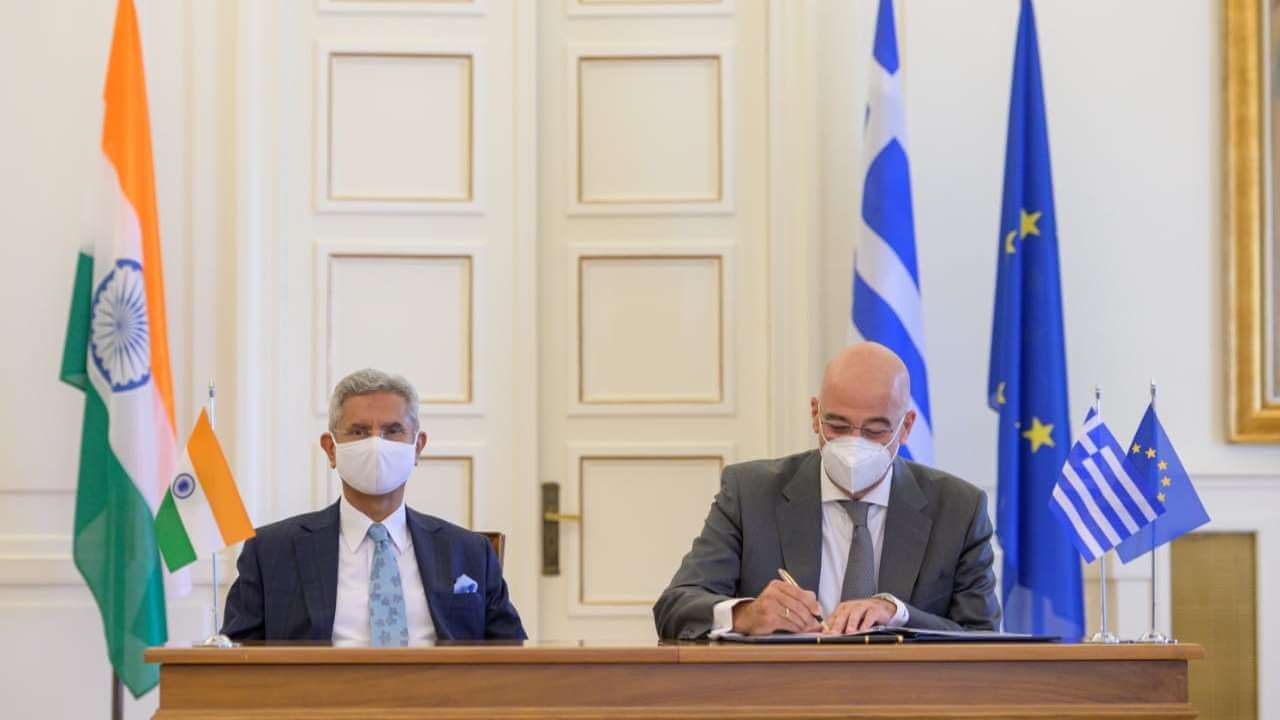Indian External Affairs Minister S. Jaishankar met his Greek counterpart Nikos Dendias during a two-day trip to Athens that concluded on Sunday. During the discussions, the first in 18 years, the Greek Foreign Minister conveyed his support to India’s vision for a “free, open, inclusive and cooperative Indo-Pacific.”
According to a joint press release, while acknowledging the “new geo-economic realities” in the Indo-Pacific, both Foreign Ministers expressed their commitment towards “ensuring connectivity and growth for all in the region.” The reference to the Indo-Pacific is an indication of Greece’s support to India against China’s growing aggression in the region. Moreover, it is particularly critical as Greece is one of China’s key allies in the European Union for its Belt and Road Initiative, specifically in light of its strategic location between Asian and European countries.
As a “strong symbol of friendship between the two countries,” the duo also unveiled a statue of Mahatma Gandhi in the Greek capital. The statement says that India and Greece’s diplomatic relations are strengthened by their “shared values of democracy, the rule of law, pluralism, equality, freedom of speech and respect for human rights.” To further these relations, the diplomats spoke of the need to bolster ongoing cooperation in several areas, including “trade and investment, science and technology, culture, academics and people-to-people contact.” In this regard, the duo agreed to conduct the next round of Foreign Office Consultations and Joint Trade Committee expeditiously and establish a strategic partnership.
Another critical win for India during the discussions was Greece’s decision to join the International Solar Alliance, a 121-country grouping created by India and France. Both ministers agreed that “this will assist the two countries in the realisation of the energy goals set by the respective governments to make renewable energy a significant part of the energy supply.”
The leaders also discussed several other global concerns, including the developments in the Eastern Mediterranean, Cyprus, and Libya. Consequently, they highlighted the importance of the “rule of law and respect for sovereignty and territorial integrity” as fundamental principles that should guide international relations. Furthermore, they spoke on the importance of multilateralism and agreed to collaborate on bringing in critical reforms to the United Nations, including expanding the membership of the United Nations Security Council. The duo also condemned and decided to combat the growing threat posed by “radicalisation, violent extremism, and terrorism, including cross border terrorism.”
Jaishankar’s visit to Athens was a part of his two-nation visit to Greece and Italy, which began on Friday. In Italy, he will participate in the G20 ministerial meeting on Monday.
In May, India and the European Union resumed discussions on a Free Trade Agreement after an eight-year halt. However, acknowledging the several hurdles that continue to obstruct negotiations, India seeks to secure closer ties with members of the bloc, including Luxembourg, Denmark, and Italy. Moreover, these individual meetings are also crucial because any Free Trade Agreement between the European Union and India will require each member’s approval. Therefore, the recent meetings act as a new push towards India’s aim to enhance diplomatic relations with the bloc and its members.

